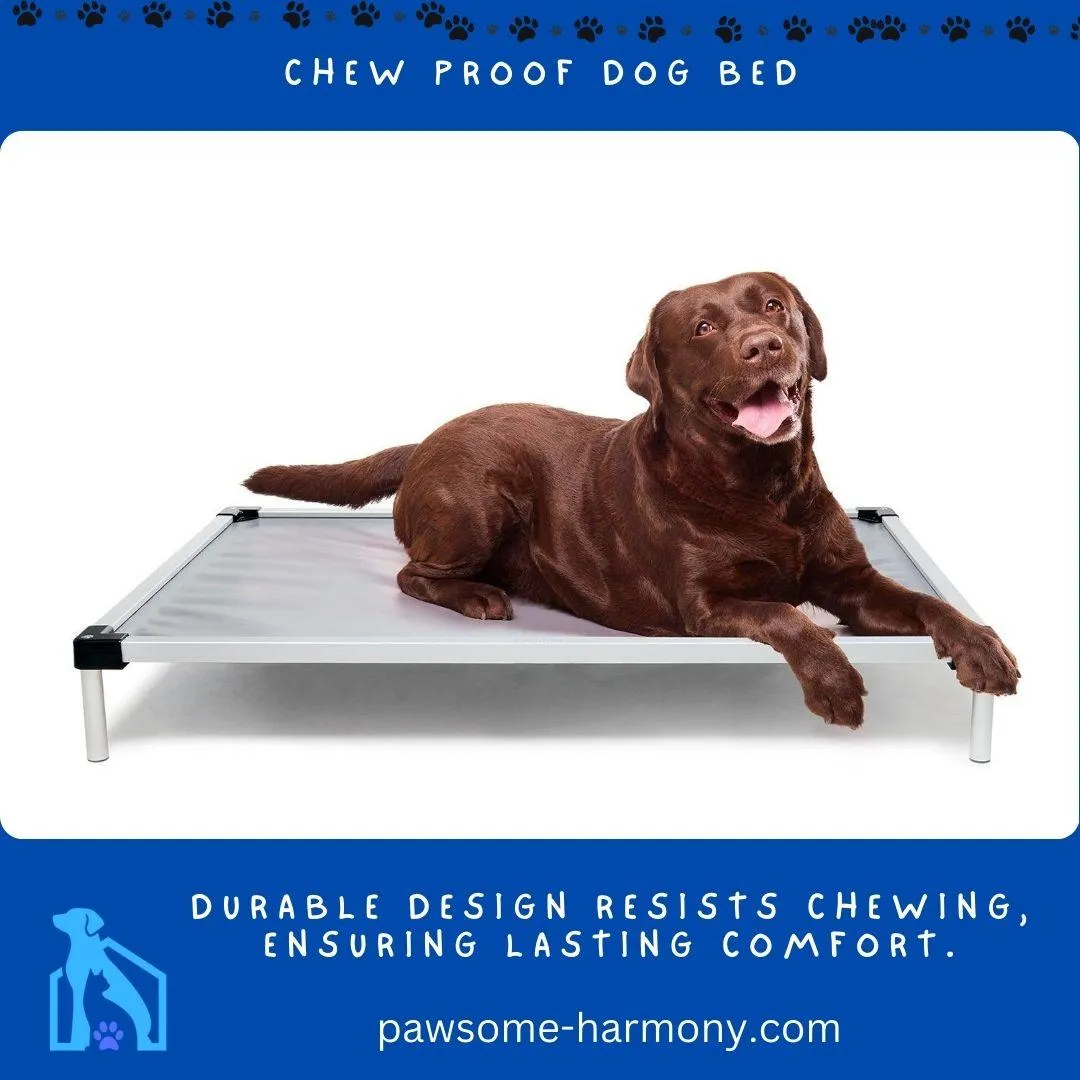Pawsome
Blog

Chew Proof Dog Bed

Dear Pet Parents,
My family adopted 2 puppies, a German Shepherd X and a Kelpie Cross. To say they are spoilt is an understatement. One of the first purchases made for these dogs was a bed. We had spent $150 for these beds and thought they would provide the ideal solution to give these dogs a peaceful sleep.
There was only one problem with these beds….
We woke up one morning to discover one dog had torn her bed to shreds.
SO what is the solution to dogs who like to chew their bed?
Chew proof dog beds have emerged as a game-changing solution for pet owners struggling with destructive canine behavior. These innovative products offer a range of benefits, but they also come with certain limitations.
Strengths
One of the most significant strengths of chew proof dog beds is their exceptional durability. Constructed with tough, resilient materials like ballistic nylon or reinforced fabric, these beds are designed to withstand even the most persistent chewers. This durability translates into long-term cost savings for pet owners, as the need for frequent replacements is drastically reduced.
Additionally, the robust construction of these beds enhances safety by minimizing the risk of dogs ingesting bed parts, which could lead to choking or intestinal blockages.
Another notable strength is the enhanced comfort and support these beds provide. Despite their tough exterior, many chew proof beds feature high-quality foam or orthopedic padding, offering a comfortable resting place for dogs of all ages and sizes. This is particularly beneficial for senior dogs or those with joint issues, as the firm support can help alleviate pressure on their joints and promote better sleep.
Ease of maintenance is a significant advantage of chew proof dog beds. Many models come with removable, washable covers that are not only chew-resistant but also stain- and odor-resistant. This feature simplifies cleaning and makes these beds an excellent choice for dogs with incontinence or allergies.
Challenges
However, chew proof dog beds are not without their weaknesses. The primary drawback is the higher initial cost compared to traditional dog beds. The specialized materials and construction techniques used in these beds result in a higher price point, which may be prohibitive for some pet owners.
It's important to note, though, that this higher upfront cost can be offset by the bed's longevity and reduced need for replacements.
Another potential weakness is that some dogs may find chew proof beds less comfortable than traditional plush beds. The materials used to make these beds chew-resistant can sometimes result in a firmer sleeping surface, which may not appeal to all dogs. Pet owners should consider their dog's sleeping preferences when deciding on a chew proof bed.
Lastly, while chew proof beds are highly durable, they are not indestructible. Extremely determined or powerful chewers may still manage to damage these beds over time, although it would take considerably more effort compared to traditional beds.
In conclusion, chew proof dog beds offer significant advantages in terms of durability, safety, and long-term value. They provide a practical solution for pet owners dealing with destructive chewing behavior. However, the higher initial cost and potentially firmer sleeping surface may not suit every dog or owner. When considering a chew proof dog bed, it's essential to weigh these factors against your pet's specific needs and your budget to make the best decision for both you and your furry friend.
Don’t miss out on your opportunity to purchase your dog the chew proof bed at
https://pawsome-harmony.com/product-details/product/chew-proof-dog-bed

Contact Us
pawsomeharmony24@gmail.com
Bedford Park, Sth Australia. Australia. 5253